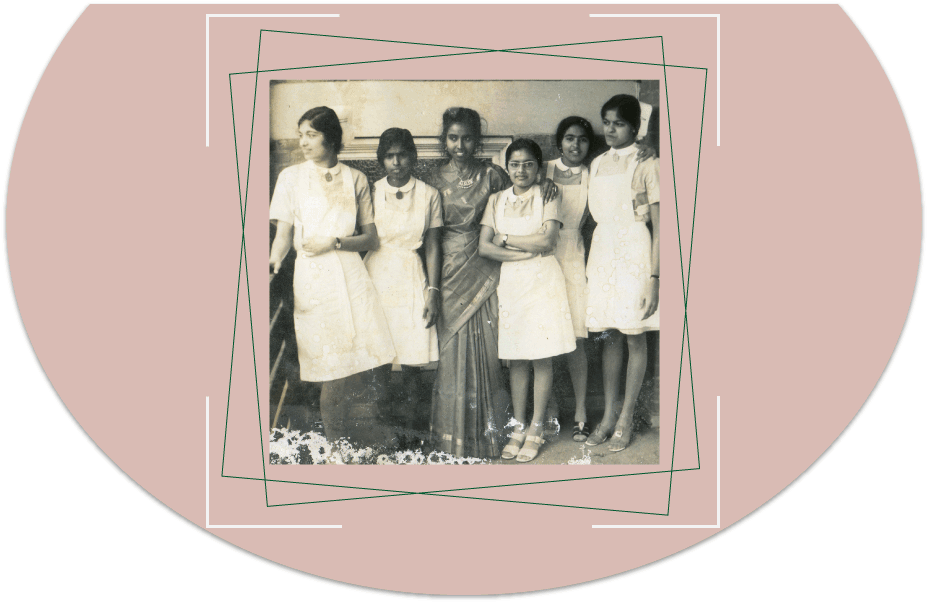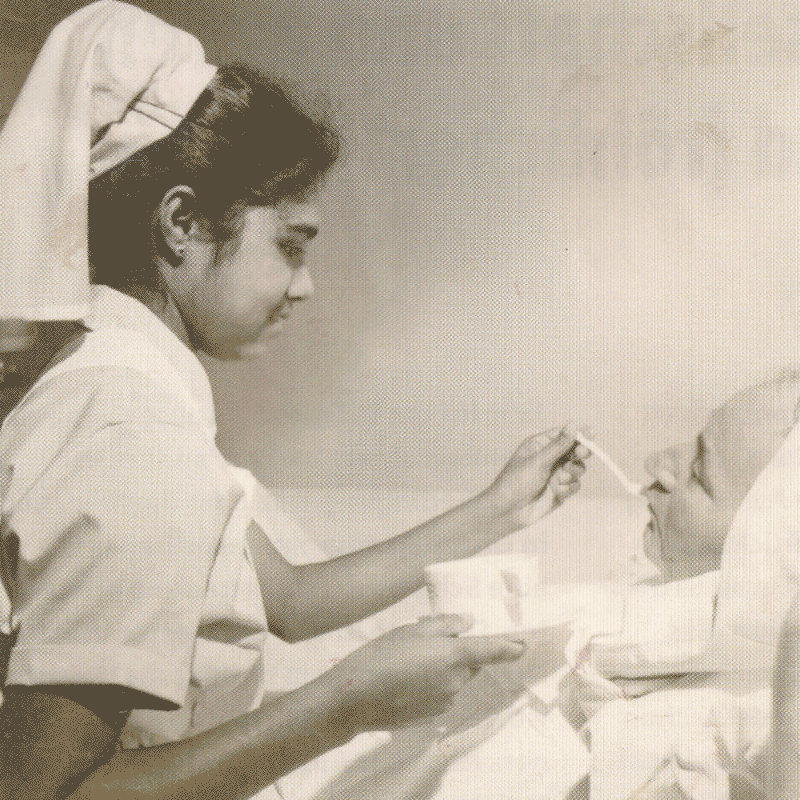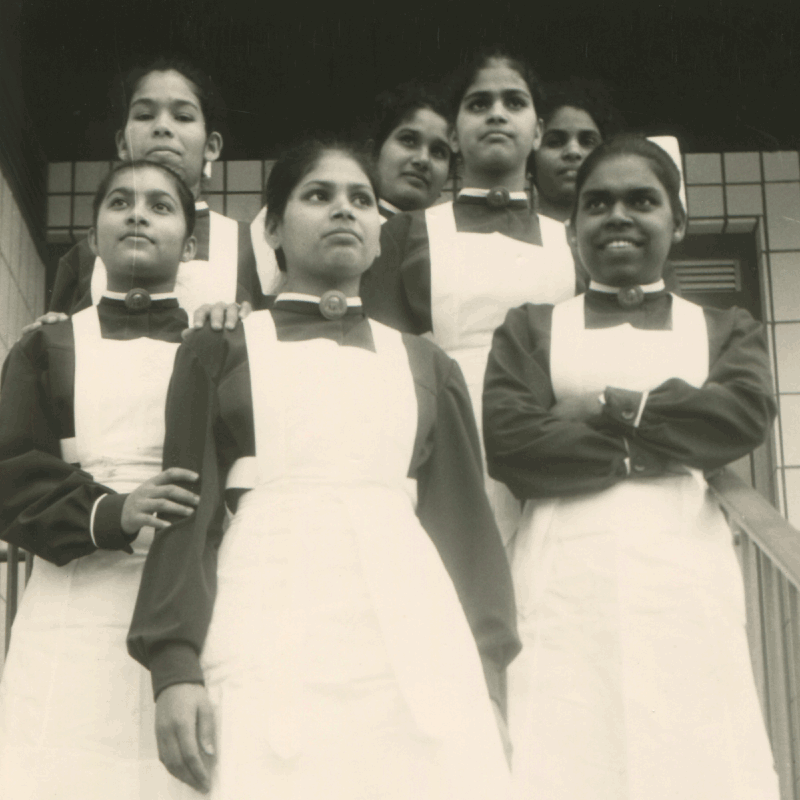This proposed study is a historical analysis of the phenomenon of women nurses’ migration from the global south to the west. This study will focus on the Kerala women care workers’
migration to the West Germany in the 1960s and 1970s. The study will adopt an intergenerational analysis of the lives of these migrant women and their families during the period from 1960s
to the present. The study will also explore the possibilities of an international comparison of Malayalee1 women nurses’ migration.
Migration could be defined as the movement of people from one place to the other (within the country or abroad) permanently or semi-permanently (for more than a year).2 Migration historically served as a source of social and economic empowerment of the individual and their families, especially for women in the
global south.3 Despite of these migrant women’s changed role as key bread winners in the family, their migration from lower-income countries to the
middle east and the west is interpreted as a “modernized patriarchal model – one that is centered around women as ‘active domestic subjects’, who are expected to contribute to the
well-being and development of the household without substantially undermining its hierarchies.”4
Nursing is an important sector that historically contributes to the international migration of women for better jobs and education. Kerala is one such state in south India, which has a
culture of training and supplying nurses to the international market. The early phase of nurse’s migration from Kerala is between the 1950s and 1970s to Gulf, USA and Europe. This has
challenged the conventional way of defining migration as a male movement. Malayalee nurses are considered to be well-trained and more adaptable in the migrated countries. The skill in care
work of Malayalee female nurses is interconnected with female education, nurse training, and migration, rooted in the history of Christianity in Kerala.5
One of the early migrations of Malayalee female care workers to Europe dates back to the 1960s. During this period, West Germany was on a mission to revamp its healthcare sector. When they
experienced a shortage of care workers, Church through its international connections recruited young female nurses from Kerala.6 By the early 1970s,
there were around 5000 Malayalee female nurses in West Germany (personal conversation with Jose Punnamparambil, 2023). The poor economic background of their families played a key role
in their decision to migrate to a country that they barely knew. Most of these girls aged between 15–17 came from middle class Christian families. Job opportunities and better pay were
significant factors in this migration. Social pressures such as marriage, child birth, divorce etc. were the psychological factors associated with their travel to a faraway land. More
importantly, the dignity of care work in West Germany played an important role in their decision to migrate. Because, in India generally care workers were called as ‘dirty nurses’ due to
the religious and patriarchal ideologies of purity, prolusion and seclusion.7
The process of integration was painful for the nurses as they faced with language barriers and large differences in social conditions. The differences in eating habits, the behavior,
unfamiliarity with the urban culture and the cold weather made the integration process much more difficult (personal conversation with Jose Punnamparambil, 2023). The young women migrants
had a hard time in finding their space in the new culture and adapting to the alienation they experienced in society. After a period of struggle, they successfully learned the language and
stayed in Germany for longer periods and were often joined by their husbands from Kerala.8 Many a time the difficulties of their husbands to find
employment created issues in these families. It was a cultural shock for the men to see a role reversal in the migrated world, where their female counterparts worked and interacted with
the society and men had to live within the four walls of their houses. This period of joblessness witnessed a male gender transferal to domestic chores. This was unthinkable for a
patriarchal male from Kerala. Hence, they experienced immense social and emotional pressure. Often women had to compensate by taking the entire burden of household duties over and above
their professional work to reduce husband’s frustration associated with emasculation (personal interview with Shiny Benjamin, 2023). Hence there was a recreation of patriarchy in the
migrated land.
The second-generation migrant women, daughters of the Malayalee nurses in Germany, encountered patriarchy in different ways. Parents tried to imbibe Indian culture in their daughters and
expected to have a rooted life. This was very much different from the cultural realities in the migrated society. Some of these young women chose to remain single despite of the pressure
from their families. Sometimes, they were pressured to marry the grooms from India, who lived their lives in local realities. This has often created issues between the couples in multiple
ways. Many of these marriages led to early divorce due to the mismatches in socio-cultural realities (personal interview with Shiny Benjamin, 2023). Growing up in a much more liberal society
failed these women to comply to the patriarchal structures in the Indian marriages. This has alienated them from the mother land.
The implications of the parental migration to Germany on the second-generation women migrants would be an interesting topic to address the questions of identity, culture and social pressure.
Comparing the experiences of these two different generations of migrant women could bring more clarity to the continuities and changes in patriarchal gender relations in the migrant land. It
would be interesting to look at how the first- and second-generation migrants experienced the process of integration into the German culture and their alienation from their motherland.
Focussing on how they dealt with the cultural divergence and reacted to it is key in understanding the emancipation aspect of migration. Proposed study will address the broader debates on
socio-economic empowerment and female emancipation in the light of lived experiences of migrant Malayalee women nurses.
The study will adopt an intersectionality approach by integrating the aspects of social-economic-gender inequalities in family and society and its implications on the decision to migrate.
The study will be based on qualitative research and the major data collection would be through an ethnomethodological field work. The lived experiences of women will be recorded through
structured and semi-structured interviews, participatory observations and other interactions. Consulting the official church and hospital records on these migration process would be
important to identify the respondents. From this pool, the maximum number of respondents would be selected and contacted for data collection.
 https://orcid.org/0000-0002-7439-2997
https://orcid.org/0000-0002-7439-2997

